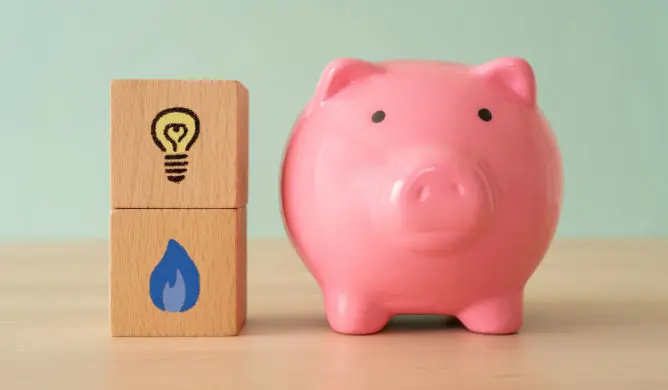Time to read : 3 Minutes
Switching From Gas To Electricity Explained
Household bills are going up.
So wouldn’t it be good to have one less bill? By understanding what’s involved in switching from gas to electricity, it is possible.
As different state and territory governments across Australia set their own targets to achieve zero emissions, phasing out gas appliances is happening – even though it won’t happen overnight.
And if you own your home and you’re keen to understand more about making the switch from electricity to gas, the truth is that the transition will cost you, but the long-term result may mean big savings. Plus a cleaner, greener energy source.
Why make the switch from gas to electricity?
If saving money is on your mind, Compare Club did a recent comparison between the cost of gas appliances vs electrical appliances that showed gas was the winner in so many ways.
Fossil gas prices, though, have been climbing dramatically since 2015. That’s when Australia started exporting lots of it. Since then, with recent sanctions on Russian gas unlikely to end anytime soon, plus reduced supply from Bass Strait, gas prices look set to keep rising.
Environmentally, electricity seems light years ahead – mainly because you can go solar to harness the natural power of the sun (and get rebates for installing solar panels in your home), which can lead to long-term, sustainable savings.
At the moment, whether you have gas or electricity in your home is a personal choice, but it may not be the case for long.
To help you decide whether to make the switch, here are some basics:
Heating
Ducted gas heating is considered one of the most expensive (and most polluting) ways to warm up your home. If you can make the switch, consider efficient electric appliances, such as reverse cycle air conditioners that are now much cheaper – and better for our climate too.
According to research from Environment Victoria, households can save money by switching from gas to efficient electric heating. For new homes with all-electric appliances, the projected saving, says Environment Victoria, is around $700 per year on energy bills. If you make the house more efficient and add solar, they say you can save up to $1795 per year, with energy bills dropping by up to 80 per cent.
Cooking
CHOICE magazine did a comprehensive comparison of cooktop options – from gas, to ceramic, to induction.
In another article, CHOICE, provided a thorough explanation of switching from gas to induction cooking.
And the general assessment?
“While many chefs and home cooks swear by their gas cooktop, the reality is that induction is superior when it comes to efficiency. This is because energy is directed into the cookware base instantly, transferring with approximately 85% efficiency. Comparatively, cooktops that transfer energy via gas-powered heating elements operate at an efficiency of 32%.
With induction, because the heat is coming from the cookware itself, rather than the cooktop, your cookware reaches the desired temperature more quickly, cooking your food faster.”
Hot water
Electric storage hot water systems use a resistance heating element (like your electric kettle). They are typically cheap to buy and install but when it comes to creating energy efficiency, they actually cost more to run and create more greenhouse gas emissions too.
Rooftop solar power is a sustainable alternative, although the initial set-up will set you back.
Before you commit to buying, make sure you have a clear understanding of how much water your household uses.
To help you choose the most efficient, cost-effective water heater appliance to suit your needs, always get quotes from multiple suppliers to compare.
Remember that installation of a new hot water system must only be done by a licensed plumber. You will also need a licensed gasfitter to remove your old gas system and make sure the pipes are capped. You can learn more about finding energy-efficient appliances here.
With some rebates available, you can make the switch and save.
Go deeper: Getting your home off gas: a quick guide
Financial disclaimer
The information contained on this web page is of general nature only and has been prepared without taking into consideration your objectives, needs and financial situation. You should check with a financial professional before making any decisions. Any opinions expressed within an article are those of the author and do not specifically reflect the views of Compare Club Australia Pty Ltd.
